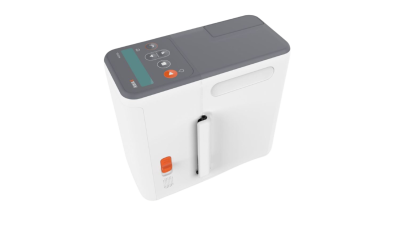A new day has dawned for AWAK Technologies, the maker of a kidney dialysis machine so small that it can fit in a shoulder bag for on-the-go treatments.
AWAK—which is named for its automated wearable artificial kidney tech—has raked in $20 million in series B funding. According to the Singapore-based company’s announcement this week, the venture round marks the country’s largest medtech funding so far this year.
The series B was co-led by Lion X Ventures and Vickers Venture Partners, with additional help from other investors, including Advanced MedTech and Eckuity Capital. It follows a $40 million round that closed at the end of 2019 and also included Vickers in the lead position, and it brings AWAK’s total lifetime VC funding past the $80 million mark.
The added funds will help carry AWAK through the pre-pivotal trial it launched at Singapore General Hospital in June, then through any further technological developments deemed necessary by the study’s findings. Once those to-dos are checked off the list, it’s aiming to kick off a pivotal trial in the U.S. in 2025 to support an eventual submission for FDA authorization.

AWAK’s technology conducts peritoneal dialysis treatments, which take place daily and rely on a patient’s own stomach lining, or peritoneum, to help clean the blood, with assistance from dialysis fluid delivered into the abdominal area via a surgically placed catheter. That’s in comparison to the more common hemodialysis, which is typically conducted three to five days a week and requires the patient’s blood to be removed and cleaned in a separate machine before returning to the body.
The AWAK PD machine can be used virtually anywhere, per the company, since it can fit in a small shoulder bag. Users can control the device using a connected mobile app, which also automatically shares information about the users’ treatments with their doctors for remote management.
The device’s small size comes from the fact that it only needs to hold a few liters of dialysis fluid per day—versus the 10 to 12 liters required for other PD systems—since AWAK has developed technology that removes toxins from used dialysate, automatically recycling it for reuse throughout the day.
“COVID-19 unveiled the intense strain healthcare providers are experiencing and the necessity to complement their capabilities with home therapies and care. AWAK is uniquely positioned to effectively manage kidney patients and support their transition to in-home care settings,” Mhamed Mengad, a member of AWAK’s board and VP of Vickers Venture Partners, said in the announcement.
The “ultraportable” dialysis machine already has a leg up with the FDA: The agency handed down its breakthrough device designation to the technology in 2019, speeding up the review of any future regulatory submissions.
Along with supporting current and future development of AWAK PD, the company said it also plans to use its new funding to expand its portfolio of kidney care technologies. Those new additions could include both physical and digital products that make in-home dialysis more accessible and ease any patient burden associated with the therapy.